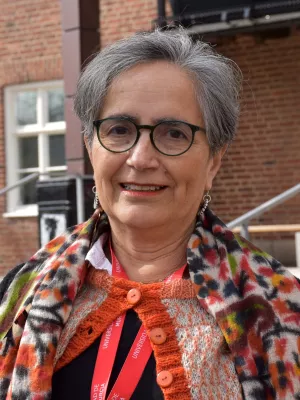
Norma Montesino
Universitetslektor | FD | Docent

Can Collaborative housing foster the housing-integration nexus? Tensions and synergies in case studies from Sweden and Switzerland
Författare
Summary, in English
Avdelning/ar
- Institutionen för arkitektur och byggd miljö
- Boende och bostadsutveckling
- Socialhögskolan
Publiceringsår
2022
Språk
Engelska
Sidor
1-22
Publikation/Tidskrift/Serie
The Struggle for the “Right to Housing”: The Pressures of Globalization and Affordability in Cities Today
Dokumenttyp
Konferensbidrag
Ämne
- Human Geography
Nyckelord
- collaborative housing
- affordable housing
- social integration
- exclusionary processes
- spatial discrimination
Conference name
European Network for Housing Research: The struggle for the right to housing.
Conference date
2022-08-31 - 2022-09-02
Conference place
Barcelona, Spain
Status
Unpublished
Forskningsgrupp
- Housing Development and Management

